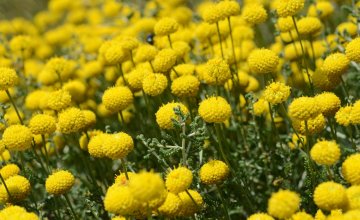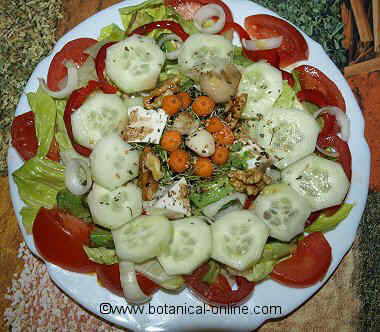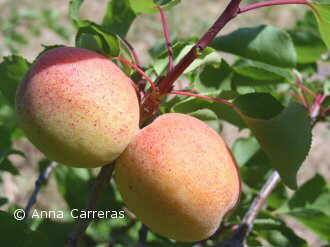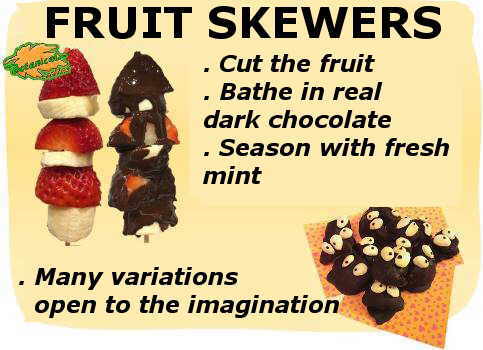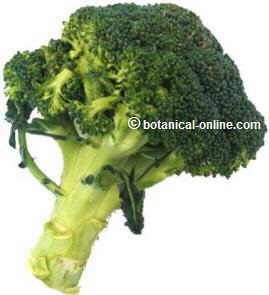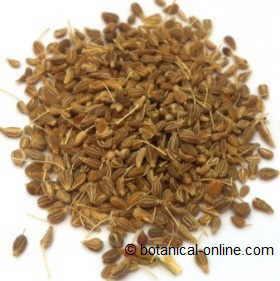STEPS TO PREPARE A DIET FOR A SPORTS PERSON

1) Interview to the person:
In the example that concerns us, our athlete is called Julian.
Julian is a 24-year-old boy. He weighs 75kg. He is 1.80m tall and he is preparing for firefighter competitive examinations.
2) Knowledge of Julian’s activity:
– Every morning he runs for half an hour,
– He does strength exercises in the gym (agility circuit, weights)
– In the afternoon, he studies for the examinations at a school,
– Besides, as he likes the mountain, at the weekend, he goes to climb with his friends.
Julian comes to us because he wants to increase his physical and mental performance, because he ends up very tired.
3) Establish his protein needs according to the type of exercise:
For this we will help the special table of nutritional recommendations of proteins for athletes of the section of needs of proteins.
Julian practices resistance, speed and strength exercises, so we will determine his daily protein needs in 2 grams of protein / kg of body weight per day.
2g protein / kg / day x 75kg = 125g daily protein |
According to his type of exercise, Julian should eat 125 grams of protein daily.
4) Estimated calories for Julian:
We must calculate the calories that Julian spends during the day:
– Basal metabolism: These are the calories that the body consumes at rest. To know them we can help us of the calorie calculator of basal metabolism. It indicates to us that its basal metabolism is 1,800 kcal.
– Exercise: How many calories, approximately, he consumes in each activity he does during the day. We can help with the calorie calculator of physical activities:
Activity | Calories |
Run 30′ at 7-9km/h | 300kcal |
Agility track, weight lifting for 30 ‘ | 360kcal |
Total calories | 660kcal |
– In total, Julian should do a diet of 2.460kcal (1.800kcal basal metabolism + 660kcal physical activity).
Although it seems a very caloric diet, in fact it is not if you consider that the exercise performed is intense, and for 5-6 days a week. Of course, if he does sports at the weekend, he can eat lighter, but in general, a diet of 3,000kcal “will not make him fat”.
5) Julian’s diet foods: how to achieve his protein needs intake?
Julian must not fall into the topic of eating large dishes of meat and pasta, as if these were the only foods rich in protein. The protein intake must come from both vegetable and animal foods (dairy, eggs, meat or fish), both of which are equally important, and of a desirable proportion of 40-60% respectively.
While it is true that protein is very important for good performance, a hyperprotein diet unbalanced in other nutrients is counterproductive (cholesterol, uric acid,…). |
Foods from a hyperproteic diet should be the same as in a balanced diet:
– Cereals (bread, rice, rye, quinoa, millet, corn,…) and / or potato every day. Carbohydrates provide slow energy ideal for more endurance and a contribution of vitamins of group B, to concentrate in class.
– Vegetables and fruits: They must be abundant, as they counteract the free radicals of the body (formed during exercise) and help in the recovery of muscles.
– Dairy as a source of calcium and protein at every meal.
– Legumes at least 2-3 times a week, as they are a food especially rich in vitamins, minerals, fiber, vegetable protein and essential fatty acids.
– Egg: source of proteins of excellent quality. Yolk is the richest part in protein. We can enrich an omelette with two egg whites and a yolk, for example.
– Fish and meat. Mainly for the supply of proteins, iodine and iron. It is enough with rations of 150g.
Vegetarian people can also follow a hyperproteic diet without these inputs, and ingesting animal protein from dairy sources and egg.
In the case of strict vegan people, they should take care of the protein intake through legumes and nuts daily, at all meals. In both cases a protein supplement such as spirulina or brewer’s yeast (with vitamin B12) is recommended.
6) Elaboration of the diet:
It is recommended to develop a balanced diet, rewriting our usual diet and choosing those foods that are healthier, leaner and rich in protein. We must not forget to eat vegetables!
Once the calculations have been obtained, introduce protein foods or increase the ration of some foods in order to achieve a hyperprotein diet of at least 125g of protein per day and 2,500kcal.
As we will see next, the habitual diets are already quite hyperproteic, although they are exceeded in fat and sugars; And you should increase legumes, cereals, vegetables and fruits from the diet.
Generally no dietary supplements are required (except in vegetarian diets), but as Julian’s activity is very high – physically and mentally – spirulina or brewer’s yeast is recommended.
Protein-rich foods are NOT the basis of a hyperproteic diet, but cereals, legumes and vegetables should always predominate. |
| DIET COMPOSITION TABLE | |
Activity | Food (g) |
8h Breakfast | Spirulina (15g capsules) Energy: 58,7 Kcal Carbohydrates: 3 g Proteins: 8,7g Fats: 1,2 g Cholesterol: 0 mg Fiber: 0,54 g |
Semi-skimmed milk (200ml) Energy: 96 Kcal Carbohydrates: 9,6 g Proteins: 7 g Fats: 3,2 g Cholesterol: 12,6 mg Fiber: 0 g | |
Muesli (45g) Energy: 178 Kcal Carbohydrates: 27,5 g Proteins:4,1 g Fats: 5 g Cholesterol: 0 mg Fiber: 3,6 g | |
Orange (225g) Energy: 77 Kcal Carbohydrates: 14 g Proteins: 1,4 g Fats: 0,32 g Cholesterol: 0 mg Fiber: 3,6 g | |
10h Exercise | Run for 30 minutes Gym: agility circuits, rowing, weights, machines for 30-45 minutes. |
11:30h | Orange (225g) Energy: 77 Kcal Carbohydrates: 14 g Proteins: 1,4 g Fats: 0,32 g Cholesterol: 0 mg Fiber: 3,6 g |
12h Midmorning | Wholemeal bread (Sandwich 70g) Energy: 160 Kcal Carbohydrates: 30,4 g Proteins:5,6 g Fats: 2,32 g Cholesterol: 0 mg Fiber: 6 g |
Fresh cheese (75g) Energy: 152 Kcal Carbohydrates: 1,9 g Proteins: 10,5 g Fats: 11,2 g Cholesterol: 10,9 mg Fiber: 0 g | |
12:30h | Study / school duties |
Activity | Food (g) |
14h Lunch | Lentils (140g cooked) Energy:153 Kcal Carbohydrates: 20,3 g Proteins: 12,3 g Fats: 0 g Cholesterol: 10,9 mg Fiber: 5,3 g |
with vegetables (100g) Energy: 50 Kcal Carbohydrates: 12 g Proteins: 3 g Fats: 0 g Cholesterol: 10,9 mg Fiber: 8 g | |
Tuna, baked (175g) Energy: 241 Kcal Carbohydrates: 0 g Proteins: 38,9 g Fats: 9,5 g Cholesterol: 70 mg Fiber: 0 g | |
with potato (200g) Energy: 109 Kcal Carbohydrates: 21,3 g Proteins: 3,3 g Fats: 0, 16 g Cholesterol: 0 mg Fiber: 3,3 g | |
Spiced tomato Energy: 90 Kcal Carbohydrates: 4,9 g Proteins: 1,2 g Fats: 0,3 g Cholesterol: 0 mg Fiber: 2 g | |
Natural yogurt (125g) Energy: 80 Kcal Carbohydrates: 6,9 g Proteins: 5 g Fats: 3,3 g Cholesterol: 12,8 mg Fiber: 0 g | |
16h | Being in the classroom |
Activity | Food (g) |
18h Mid afternoon | Almonds (20g) Energy: 110 Kcal Carbohydrates: 0,97 g Proteins: 4,1 g Fats: 9,7 g Cholesterol: 0 mg Fiber: 2,4 g |
Orange (225g) Energy:77 Kcal Carbohydrates: 14 g Proteins: 1,4 g Fats: 0,32 g Cholesterol: 0 mg Fiber: 3,6 g | |
21h Dinner | Vegetable cream (100g) Energy:50 Kcal Carbohydrates: 12 g Proteins: 3 g Fats: 0,9 g Cholesterol: 0 mg Fiber: 5 g |
with potato (200g) Energy: 109 Kcal Carbohydrates: 21,3 g Proteins: 3,3 g Fats: 0, 16 g Cholesterol: 0 mg Fiber: 3,3 g | |
Sautéed tofu with soy sauce (125g) Energy: 111 Kcal Carbohydrates: 4,1 g Proteins: 10,1 g Fats: 6 g Cholesterol: 0 mg Fiber: 0,38 g | |
Natural yogurt (125g) Energy: 80 Kcal Carbohydrates: 6,9 g Proteins: 5 g Fats: 3,3 g Cholesterol: 12,8 mg Fiber: 0 g | |
| 22:30h Mid-night snack | Skimmed milk (200ml) Energy: 96 Kcal Carbohydrates: 9,6 g Proteins: 7 g Fats: 3,2 g Cholesterol: 12,6 mg Fiber: 0 g |
Hydration throughout the day: 1.5-2 liters of water daily | |
Daily olive oil (30ml) Energy: 270 Kcal Carbohydrates: 0 g Proteins: 0 g Fats: 30 g Cholesterol: 0 mg Fiber: 0 g | |
Total intake Energy: 2424,7 Kcal Carbohydrates: 234,3 g Proteins: 136,3 g Fats: 92,28 g Cholesterol: 118,9 mg Fiber: 50,62 g | |
8) Recommendations for the sportsman
The following table summarizes the recommendations that we can advise to accompany a healthy diet in sport:
RECOMMENDATIONS FOR THE SPORTSMAN |
| – Chew all foods well. Digestion begins in the mouth. – Drink water throughout the day. – Physical activity is a regular habit: on days when we do not go to the “gym” or we do not do sport, we must also move. Every day we should walk, at least, 30 – 60 minutes. – Dinner / lunch before the competition: at least 4 hours before the competition. In general, a meal not very rich in fiber is recommended to avoid intestinal disorders (choose little fibrous vegetables, carrot, potato, onion, zucchini, white bread); With good contribution of carbohydrates (pasta soup, pasta dish, white rice, potato salad,…). Not recommended spinach, Swiss chard, artichokes, because of its high fiber content. In case of regular training or gym, these guidelines are not necessary. – Before the competition: before the competition (minimum 20 minutes before), eat easily digestible foods (fruit, juice) or have breakfast / snack 1:30 hours before the competition / training. In long competitions it is recommended to drink 1:30 hours before to give time to urination before the race. Energy drinks are discouraged. – During exercise: in case of prolonged intense exercises (marathon, mountain biking,…), isotonic drinks are recommended. In case of training, gym or not very intense exercise (less 1:30 hours), the recommended drink is water. – After exercise: Depending on the intensity of the exercise, we will drink juice, isotonic drinks (intense exercise) or fruit (low intensity exercise). The next meal should be rich in vegetables, containing some dairy, and with protein and carbohydrates. The usual rations are enough, all the excesses are “converted” into fat. |
Diet comment
Below there is a table with the nutrient count of the diet:
– Every diet is standard and must be tailored to each particular case. We should not fear “getting fat” and eating little (because it often ends up in unbalanced foods, due to excesses or insufficient intakes), but to eat well and gradually to balance diet and exercise.
– This diet is close to the total calories that Julian needs. It is possible to say that a balanced diet is calculated in 2 days, reason why if one day “we eat less vegetable”, we balance it with the following one, for example. In the same way, if one day we do not reach the caloric needs, surely another one will surpass it a little. As long as we do not end up hungry. It is as important the quantity as the way of eating: chewing well and eating quietly.
– The contribution of protein is 60% -40% animal-vegetable respectively, which is due to legumes (lentils, tofu,…) and nuts. The dietary habits of the population tend to disregard this type of protein as minor, while they are vital to our body and to balance the diet. Likewise, in vegan diets it should be supplemented with essential amino acids (“protein supplements”), since they are only present in animal sources and our body can not manufacture them.
– This diet contains 230g of carbohydrates, and 93g of fat (30g from the monounsaturated olive oil). The contribution of carbohydrates (moderate rations of pasta, bread) can be increased by reducing fat (skimmed milk, substituting dried fruits by dried fruit). It an athlete wants to reduce his/her body weight or lower cholesterol levels. L-carnitine supplements can help eliminate more fat and thus mark more muscle, although in thin people it is not recommended.
– The total contribution of fiber is considerable, 50g, due to legumes (lentils, tofu), whole wheat bread and vegetables. Although not harmful to health, but the opposite, if we have discomfort we can choose white bread the days we eat legumes. A yogurt for dessert will help reduce flatulence.
Diet Counts | Recommendations for a balanced diet | |
| Calories | 2.424,7kcal | 2.460kcal |
| Carbohydrates | 234g de carbohydrates | Every diet should have at least more than 100g of carbohydrates. |
| Proteins | 136,3g of protein | For Julian, 125g of protein per day (See point 3). |
| Animal source protein | 76,4g of protein (56% of the protein intake) | 60% in diets for very active athletes 50% in balanced diets |
| Vegetable source protein | 59,9g of protein (44%of the protein intake) | 40% in diets for highly active athletes 50% in balanced diets |
| Fats | 92,8g of fat | Minimum 30ml olive oil daily |
| Cholesterol | 118,9mg of cholesterol | Less than 300mg / day. |
| Fiber | 50g of fiber | More than 25g. |
– Although not calculated, this diet and all diets for athletes should have:
| Nutrient | Recommended Daily Amount | PropertiesDietary sources |
| Vitamin C | > 60mg 90mg in intense activity | Essential to combat the oxidation of activity and study. Citrus, salads, vegetables and vegetables. |
| Magnesium | > 400mg | Necessary to counteract the metabolic acidity produced by exercise and for muscle function. Vegetables, legumes (legumes, soy, tofu, soy drink), nuts. |
| Calcium | 1.200mg | To counteract metabolic acidity and muscle function. Dairy products, pulses, vegetables, citrus fruits, nuts. |
| Zinc | 15mg | For the formation of sexual cells, optimal state of the defense system (immunity), antioxidant. Seafood, fish, egg, whole grains (cereals, bread), legumes, nuts. |
| Iron | 10mg | Necessary for the formation of red blood cells (“blood”). Legumes, nuts, meat, fish. Vitamin C increases the absorption of iron present in food. |
| Folic acid | 400mg | It collaborates in the manufacture of red blood cells (“blood”). Meat, fish, legumes, nuts, green leafy vegetables, fruits, |
| Vitamin B12 | 2,5mcg | Collaborates in the manufacture of red blood cells. Dairy, egg, seafood, fish, meat. Vitamin B12 present in algae is not bioavailable to humans. |
| Iodine | 150mcg | Important to regulate the metabolism. Only marine sources contain good iodine inputs. Fish, shellfish, seaweed (spirulina), sea salt, iodized salt |
| A balanced diet that includes plenty of plant foods, such as vegetables, fruits, dairy, whole grains, legumes, nuts and eggs, in addition to olive oil, provides us with all the important nutrients for optimal health. | ||
* Related information:
An ideal fruit for doing sports
Acai, ideal food for athletes,
Weekly diet for competition and training
![]() More information on natural vegetarian food for sport.
More information on natural vegetarian food for sport.


